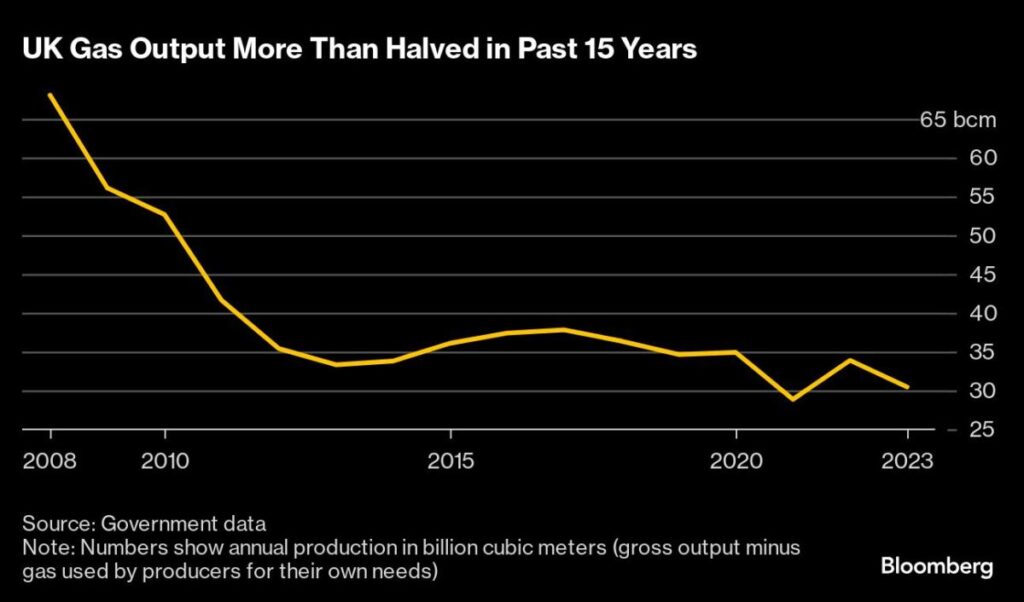(Bloomberg) — Britain’s natural gas output is declining faster than expected and leading to greater reliance on imports, according to an industry group seeking government relief to spur investment.
Most Read from Bloomberg
Production fell about 13% this year through August on an annual basis, and a similar rate is possible for all of 2024, said Ross Dornan, market intelligence manager at Offshore Energies UK. That compares with a 10% decline forecast earlier this year for the UK’s aging North Sea basin.
“We should be a little bit worried about output from the basin and faster decline rates,” he said in an interview. “There is not a huge amount of new production coming through.”
The group, known as OEUK, is looking for some support for domestic energy investment in the government’s Autumn Budget, due Oct. 30. The previous Conservative government imposed a windfall tax on oil and gas profits during the energy crisis two years ago, and Labour plans to raise the levy even further to plug a fiscal gap.
The UK’s new tax system could lead to an investment slump of 80% in oil and gas in the next five years, according to OEUK. The group has noted that Shell Plc’s Victory gas field in the North Sea may be the only one with a final investment decision in 2024.
Britain’s energy production is now equivalent to only 60% of demand, the group said this month. Meanwhile, Europe’s gas market remains sensitive to supply risks, with prices swinging sharply on geopolitical tensions and unplanned outages.
The UK now produces around 90 million cubic meters of gas per day, after volumes recovered from summer field maintenance, according to Dornan. The average rate this heating season could be 85 million cubic meters a day, less than both of the previous two years, according to gas-network operator National Gas Transmission Plc.
Declining Oil
UK oil production has also been falling, with an expected decline of about 10% this year, according to Dornan. From January through August, oil output averaged 660,000 barrels a day, he said, adding that full-year numbers “might be slightly lower.”
The nation’s daily production of both oil and gas averaged 1.11 million barrels of oil equivalent in the first eight months of the year, about 11% lower on an annual basis.
The daily production rate is set to drop to about 700,000 barrels by the end of the decade, the North Sea Transition Authority, the industry regulator, estimates. Even that may be optimistic, according to Dornan.
“That’s possible, but that can only be achieved through progression of new investment at a better rate than is currently coming through,” he said. “And that’s a big concern.”
Most Read from Bloomberg Businessweek
©2024 Bloomberg L.P.
Read the full article here
